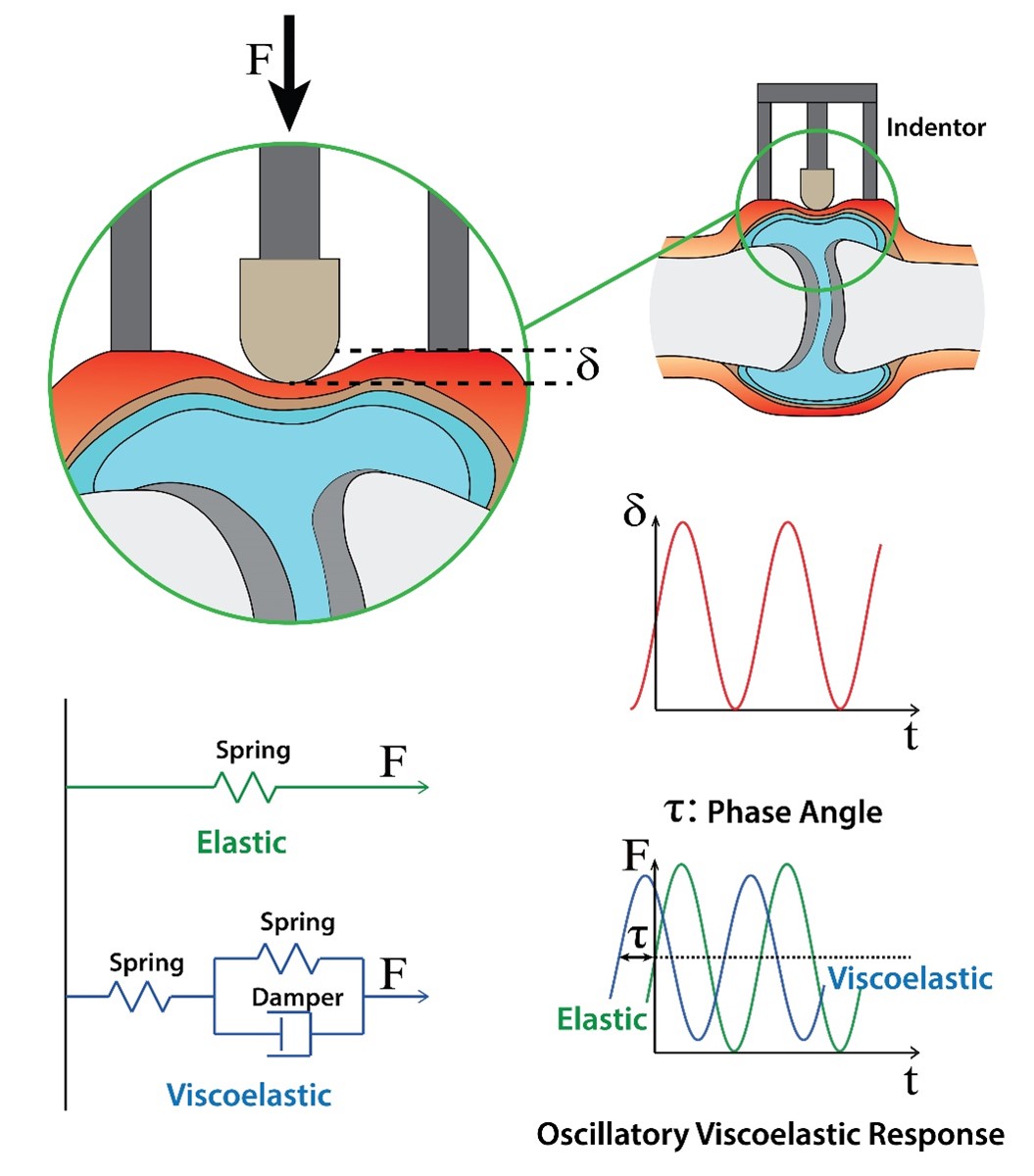Session Information
Session Type: Poster Session B
Session Time: 10:30AM-12:30PM
Background/Purpose: Rheumatoid arthritis (RA) is a chronic inflammatory disease that requires regular monitoring to prevent joint damage and systemic complications. However, the shortage of trained rheumatologists and limited access to advanced assessment tools, such as ultrasonographic examinations, in many areas hinder effective disease management. This study aims to develop a noninvasive technology for on-site assessment of RA synovitis.
Methods: Based on the fact that synovial tissue inflammation causes changes in the mechanical properties within joints, we developed a compact, portable indentation device to measure the contact properties of synovial joints and monitor changes in intraarticular mechanics caused by synovitis. As a preliminary test, we created a model synovium using a hydrogel membrane with varying amounts of injected water to mimic different states of synovitis. A gentle oscillatory indentation is applied to the model to measure the contact viscoelasticity.
Results: The viscoelastic phase angle measured by the device increases with the amount of water injected into the model synovium, indicating that the device can distinguish the severity of synovitis and monitor RA disease activity. Furthermore, the phase angle increases with oscillatory indentation depth, indicating that the device captures the internal properties within the membrane when the indentation is deep enough. This suggests the necessary operating conditions for performing oscillatory measurements on the surface of the skin.
Conclusion: This approach quantifies RA synovitis based on the viscoelastic properties, which can potentially be integrated with artificial intelligence. This will significantly advance RA management, particularly in resource-limited settings. The device’s versatility and ease of use allow it to aid providers in tracking disease activity longitudinally, diagnosing RA flares, and adjusting treatment strategies accordingly.
To cite this abstract in AMA style:
KIM W, PARK C, KOO S, CHEONG J, KIM J. Development of Noninvasive Assessment Technology for Rheumatoid Arthritis Based on Contact Property Measurements [abstract]. Arthritis Rheumatol. 2024; 76 (suppl 9). https://acrabstracts.org/abstract/development-of-noninvasive-assessment-technology-for-rheumatoid-arthritis-based-on-contact-property-measurements/. Accessed .« Back to ACR Convergence 2024
ACR Meeting Abstracts - https://acrabstracts.org/abstract/development-of-noninvasive-assessment-technology-for-rheumatoid-arthritis-based-on-contact-property-measurements/

